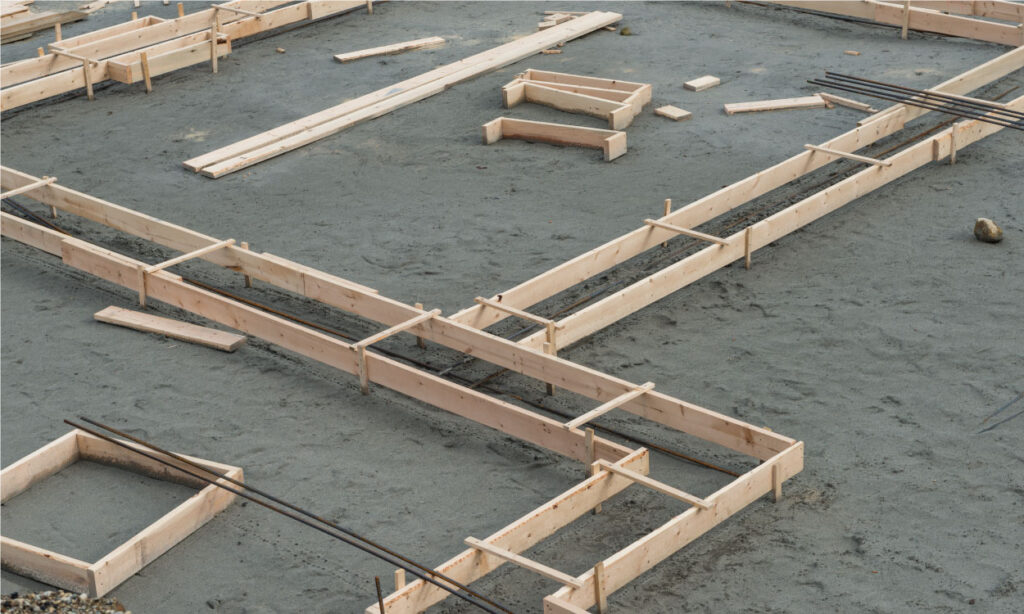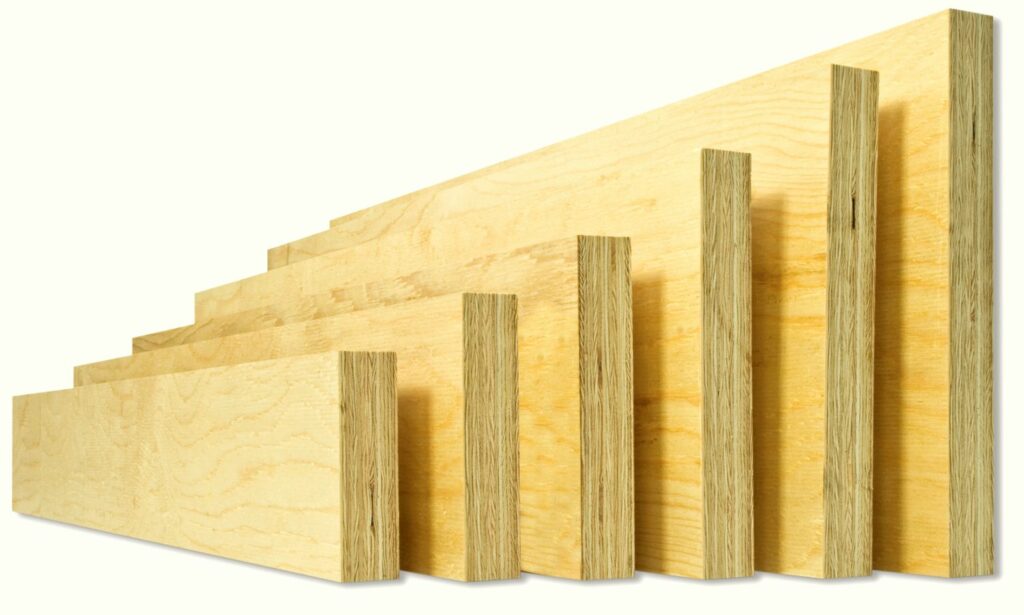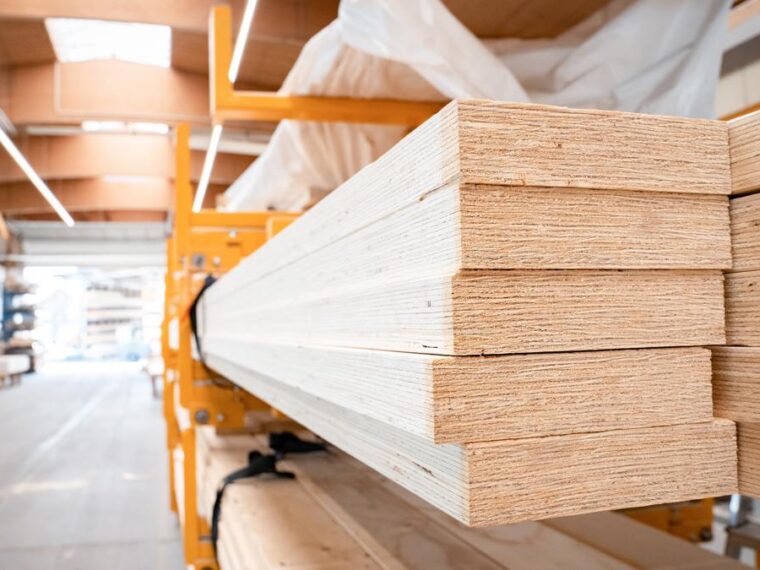When it comes to constructing sturdy and reliable formwork, one of the key materials you can use is Laminated Veneer Lumber (LVL). This engineered wood product is made from multiple layers of thin wood veneers, bonded together with adhesives, resulting in a high-strength material that is particularly well-suited for various building applications. In this article, we will explore everything you need to know about LVL timber, including its uses, where to buy it, and tips for making smart purchasing decisions.
Understanding LVL Timber and Its Uses in Formwork
What is LVL Timber?
LVL timber is an engineered wood product known for its structural strength and versatility. Unlike traditional lumber that can be inconsistent in quality, LVL is manufactured under controlled conditions, ensuring uniform properties throughout the material. The process involves stacking multiple layers of wood veneers, which are then glued together with high-strength adhesives. This design not only enhances the strength of the timber but also minimizes waste.
Once you’ve buy LVL timber, be mindful of how it is stored on-site. Keeping the timber dry and elevated off the ground will help prevent moisture-related issues that can compromise its durability. Consider using pallets or similar structures to create airflow around the timber, which can further reduce the risk of mold or rot. It’s also a good idea to cover the timber with a tarp or plastic sheeting if it needs to be stored outdoors, ensuring that it remains protected from the elements until you’re ready to use it.
Commonly used in construction, LVL can be found in beams, lintels, columns, and even in engineered floor systems. Its ability to support heavy loads makes it an ideal choice for formwork in concrete construction, where structural integrity is vital for holding wet concrete until it cures. Additionally, LVL timber is often sourced from sustainably managed forests, making it an environmentally friendly option in the construction industry. This sustainability aspect appeals to eco-conscious builders and developers, further enhancing the appeal of LVL as a modern building material.

Benefits of Using LVL Timber in Formwork
There are several advantages to using LVL timber for formwork applications:
- High Strength-to-Weight Ratio: LVL offers superior strength while being lighter than solid timber, making it easier to handle and transport.
- Dimensional Stability: Unlike regular wood, LVL is resistant to warping, twisting, or splitting, ensuring a consistent formwork structure.
- Design Flexibility: LVL can be engineered to meet specific size and load requirements, allowing for innovative and efficient design solutions.
- Cost-Effectiveness: Its durability and minimal maintenance requirements can lead to lower overall costs in the long run.
Moreover, LVL timber is particularly advantageous in regions prone to extreme weather conditions. Its engineered nature allows it to withstand moisture and temperature fluctuations better than traditional timber, which can degrade over time. This resilience not only extends the lifespan of formwork but also reduces the frequency of replacements and repairs, contributing to overall project efficiency. Furthermore, the ease of cutting and shaping LVL timber means that construction teams can quickly adapt to changes in design or site conditions, streamlining the building process and enhancing productivity on-site.
Another noteworthy aspect of LVL timber is its compatibility with modern construction technologies. As the industry moves towards more integrated building processes, LVL can be easily incorporated into prefabricated systems and modular construction. This adaptability allows for quicker assembly times and less on-site labor, which is increasingly important in today’s fast-paced construction environment. The combination of strength, stability, and versatility makes LVL timber a preferred choice for engineers and architects looking to push the boundaries of design while ensuring safety and performance in their projects.
Factors to Consider When Buying LVL Timber
Quality of the Timber
When purchasing LVL timber, it’s crucial to assess the quality of the product. High-quality LVL should be free from defects such as knots, voids, or misalignments. Look for products that meet recognized standards such as AS/NZS 4357 (Australian/New Zealand standard) or similar certifications in your region. These standards ensure that the LVL has undergone rigorous testing and meets specific performance criteria relevant to construction needs.
It’s advisable to request samples or photographs of the LVL timber before making a bulk purchase. Establishing a relationship with reputable suppliers can also provide peace of mind regarding quality assurance. Furthermore, consider the manufacturing process of the LVL timber, as this can significantly impact its strength and reliability. Understanding how the timber is laminated and the adhesives used can provide insights into its long-term performance in various environmental conditions. Learn more about reliability on https://web.cortland.edu/andersmd/STATS/valid.html
Sustainability and Certification
In today’s environmentally conscious market, sustainability is a significant factor when choosing building materials. Look for LVL timber that is sourced from certified forests. Certifications from organizations like the Forest Stewardship Council (FSC) or the Programme for the Endorsement of Forest Certification (PEFC) indicate that the timber has been harvested responsibly and sustainably.
Sustainable practices in sourcing LVL not only contribute to environmental preservation but also enhance the credibility of your construction project, which can be vital for clients and regulatory approvals. Additionally, opting for sustainably sourced LVL timber can often lead to improved energy efficiency in your building, as many certified products are designed to minimize waste and maximize resource use throughout their lifecycle. This can be an attractive selling point for environmentally conscious clients looking to invest in green building practices.
Price and Value for Money
While price is an essential factor in your purchasing decision, it is vital to assess the overall value for money rather than just going for the cheapest option. Consider factors like durability, maintenance, and expected lifespan. Sometimes, a higher initial investment in quality LVL timber can result in greater savings over time due to reduced maintenance and replacement costs.
Be sure to compare prices from multiple suppliers. Requesting quotes will give you a better understanding of the market rate and help you negotiate the best deal possible. Additionally, consider the potential for bulk purchasing discounts or loyalty programs that some suppliers offer, which can further enhance your cost-effectiveness. It’s also wise to factor in the potential impact of market fluctuations on timber prices, as this can influence your overall budget and project timeline. Understanding these dynamics can help you make a more informed decision that aligns with both your financial and project goals.
Top Retailers for LVL Timber
Local Hardware Stores
Local hardware stores can be an excellent place to begin your search for LVL timber. Many regional chains and independent suppliers carry a selection of engineered wood products, including LVL. Shopping locally often allows for immediate pickup of your needed materials and provides the opportunity to consult with knowledgeable staff about your specific project needs.
Additionally, purchasing from local retailers can support the community and reduce transportation costs, both financially and environmentally. Many local stores also host workshops or offer advice on DIY projects, which can be invaluable for those new to construction or woodworking. Engaging with local suppliers can lead to discovering unique products that may not be available in larger chains, allowing you to add a personal touch to your projects.
Online Marketplaces
The convenience of online shopping has extended to the timber industry. Various e-commerce platforms specialize in construction materials, including LVL timber. Websites like Global Industrial, Home Depot, and specialized timber supply sites offer a wide array of options where you can easily compare prices and specifications.
However, when ordering online, ensure that you check the credibility of the supplier, read customer reviews, and verify the return policies in case the product does not meet your expectations. Additionally, many online retailers provide detailed product descriptions and specifications, which can help you make informed decisions. Some platforms even offer virtual consultations or customer service chat options, allowing you to ask questions and clarify any doubts before making a purchase, ensuring that you get exactly what you need for your project.

Direct from Timber Mills
Buying directly from timber mills can often yield the best prices, as it eliminates the middleman. Many mills offer a wide range of options and can customize orders to meet unique project requirements. It is also common for mills to provide bulk pricing, making this option potentially more cost-effective for larger projects.
Establishing a direct relationship with a timber mill can help you secure a reliable supply chain for your future projects as well. Be prepared to discuss your specific needs when contacting a mill, as they can provide valuable advice and recommendations based on their expertise. Furthermore, many mills are committed to sustainable practices, and sourcing your materials directly from them can ensure that you are supporting environmentally responsible operations. This connection can also lead to insights about the latest trends in timber products and innovations in engineered wood technology, keeping you informed and ahead in your projects. To find more about sustainable click here.
Tips for Purchasing LVL Timber
Assessing Timber Quality
To ensure you select high-quality LVL timber, conduct a thorough assessment before purchasing. This evaluation process involves inspecting the timber’s surface for defects and checking for any signs of moisture damage. It is also advisable to look at the cut ends of the lumber for even lamination and no signs of delamination.
If possible, bring along a tape measure to confirm that the dimensions are accurate and consistent with the specifications provided by the supplier. Additionally, consider examining the timber for any warping or twisting, as these issues can affect the structural integrity of your project. A straight edge or level can be helpful tools in this regard, allowing you to identify any irregularities that may not be immediately visible.
Negotiating Prices
Don’t hesitate to negotiate prices with suppliers, especially if you are purchasing in bulk. Many retailers and mills expect some level of negotiation. Being informed about the average market prices and available alternatives can strengthen your position when discussing terms. Additionally, consider offering to pay in cash or commit to future purchases to encourage the supplier to offer a better deal. Building a rapport with your supplier can also lead to better pricing and terms, as they may be more inclined to work with customers they trust.
It’s also worth exploring any available discounts for first-time buyers or loyalty programs that some suppliers may offer. These incentives can significantly reduce your overall costs and provide additional value to your purchase. Don’t forget to inquire about any seasonal promotions or clearance sales that might be happening, as these can present excellent opportunities to secure high-quality LVL timber at a fraction of the usual price.
Delivery and Handling Considerations
Finally, consider the logistics involved in the delivery and handling of your LVL timber. Ensure that the supplier provides adequate transportation options, including arrangements for loading and unloading. If you plan to pick up the materials yourself, measure your vehicle to confirm that it can accommodate the lengths of the LVL you intend to purchase. Additionally, be aware of any weight restrictions your vehicle may have, as LVL timber can be quite heavy, especially in larger quantities.
Read about benefits of lvl timber on: The Benefits of LVL Timber in Formwork Applications

